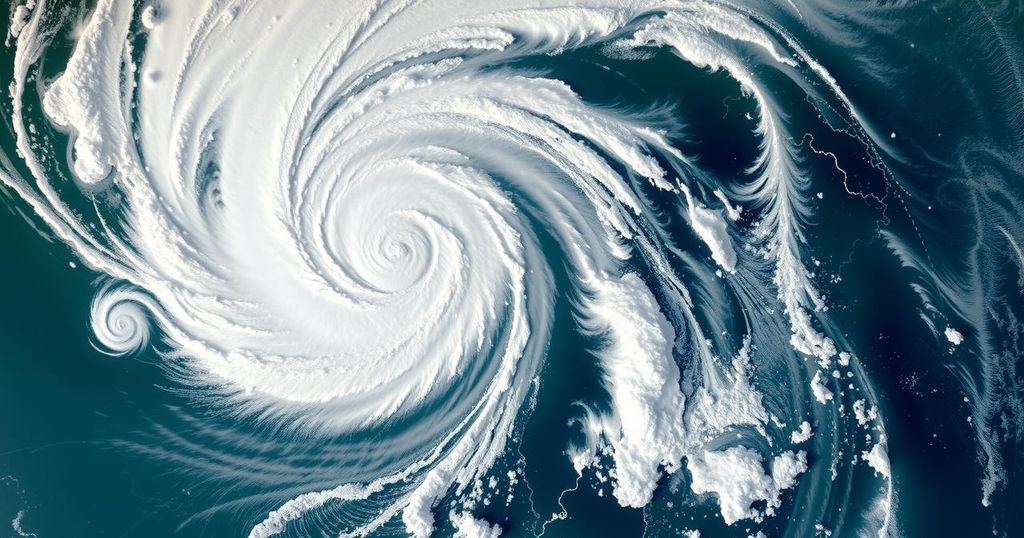Tropical Storm Dikeledi Strikes Northern Mozambique, Causing Devastation
Tropical Storm Dikeledi has struck northern Mozambique, following its impact on Madagascar which left three dead and initiated flooding in Mayotte. Wind gusts may reach 180 kilometers (110 miles) per hour, with rainfall forecasts predicting up to 200 millimeters within a day. Preparations and safety measures have been emphasized by local authorities to mitigate damage and protect lives.
Tropical Storm Dikeledi made landfall in northern Mozambique on Monday, following its impact on Madagascar where it resulted in at least three fatalities and caused severe flooding in the French territory of Mayotte. The storm intensified as it approached the Nampula region, bringing destructive winds of up to 180 kilometers (110 miles) per hour and expected rainfall of 200 millimeters (nearly eight inches) within a 24-hour period, as reported by Meteo-France, the French weather agency.
In December, Cyclone Chido had already caused significant destruction in the same region of Mozambique, leading to over 120 deaths and injuring more than 5,600 individuals. The National Institute of Meteorology in Mozambique has issued flood warnings and urged citizens to prepare for the storm by seeking safe shelter and ensuring access to food and clean water.
President Filipe Nyusi emphasized the importance of safety, instructing residents to “Go immediately to a safe shelter and stay there until the authorities give you further instructions” during his parliamentary statement in Maputo. Previously, Dikeledi impacted Madagascar at its northern tip, producing strong winds and heavy rainfall; additional warnings suggest that it may again affect Madagascar’s southwest coast as it continues its southward trajectory later in the week.
Cyclones typically form in the Indian Ocean between November and March. This year, elevated surface water temperatures nearing 30 degrees Celsius (86 degrees Fahrenheit) have been observed, contributing to the heightened intensity of storms in this region. Such warming trends have been linked to broader global climate changes that are also affecting cyclone patterns in other oceanic regions.
Tropical Storm Dikeledi is a recent meteorological event characterized by its rapid intensification and destructive impacts on regions surrounding the Indian Ocean. The storm’s development has been linked to unusually warm surface water temperatures, which are known to fuel cyclonic activity. Historically, cyclones pose significant threats to coastal areas, especially during the peak months of the cyclone season, which spans from November to March in this part of the world. The previous cyclone, Chido, had already demonstrated the devastating potential of such storms, highlighting the ongoing vulnerability of nations like Mozambique and Madagascar to these natural disasters.
In summary, Tropical Storm Dikeledi has posed significant threats to both Madagascar and Mozambique, with tragic fatalities reported and extensive warnings of flooding and strong winds. The storm’s arrival follows a recent history of severe cyclonic activity, underlining the essential need for preparedness among vulnerable populations. The continued rise in ocean temperatures linked to climate change further emphasizes the importance of addressing the increasing severity and frequency of such storms.
Original Source: www.barrons.com




Post Comment